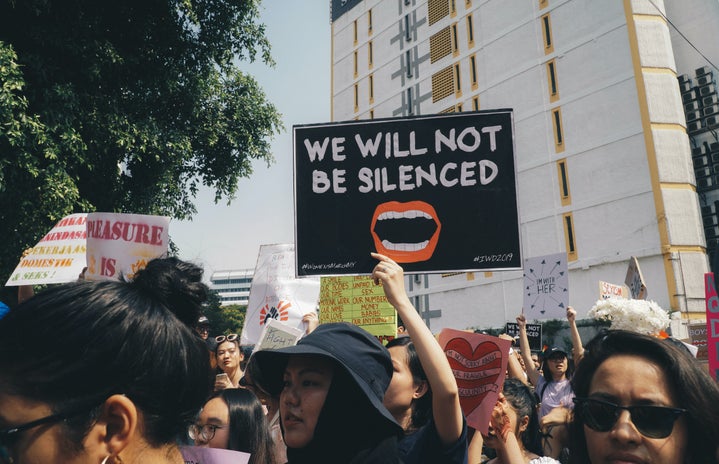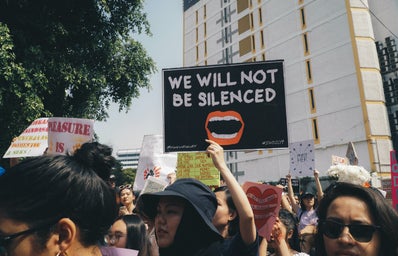International Women’s Day (IWD) is a holiday celebrated every year on the 8th of March. The IWD website tells us that from the very first one in 1911, the day has expanded globally to celebrate the ‘social, economic, cultural and political achievements of women’. It also mentions that the day ‘marks a call to action for accelerating women’s equality’. So, in order to honour the purpose of IWD, below are just a few examples of current issues relating to women’s rights and the feminist movement that women from different countries are facing today.
Sexual and reproductive rights in the United States:
More abortion restrictions were introduced in the US in 2021 than in any other year. Some state governments such as Texas were allowed a near-total ban to be enacted by the Supreme Court. This means that abortion became criminalised even as early as six weeks into the pregnancy. What is particularly outrageous about this is that most women don’t realise that they are pregnant at six weeks. The denial of the right to safe and legal abortions has affected millions of women, and has been a hugely disappointing step back in women’s rights for the nation.
Conflict and gender-based violence in Ukraine:
The ongoing conflict in Ukraine has plunged the country into a humanitarian crisis. The millions of women caught in between are currently suffering a multitude of issues. As daily life in Ukraine becomes increasingly militarised, public resources are directed more towards military supplies and thus the safety of women and girls is increasingly unprioritised. Access to essential services is restricted, mothers are unable to care for their children, and with images of women giving birth as they take shelter from airstrikes, it is clear that the escalating violence is making it more and more unsustainable for women to be safe in their daily lives.
Restrictions in Afghanistan:
The rights of women in Afghanistan have been immensely restricted since the Taliban seized Kabul in 2021. To list a couple of examples: Women cannot travel without a male guardian, and girls over twelve have no access to education. They are denied opportunities for work, and remain unprotected from gender-based violence by the law. Despite the courageous protestations by women across the nation in an effort to free themselves of these restrictive policies, they continue to remain considered as second-class citizens.
The IWD website goes on to state that the campaign theme for the celebration in 2023 is to #EmbraceEquity. ‘People start from different places, so true inclusion and belonging require equitable action’, it says. As people living in the UK, it is important to remember to be intersectional in our feminism while we celebrate women. And, perhaps most importantly, remember to take care of yourself too.
Intersectional feminism – feminism that takes the multi-faceted factors (e. g. race, sexuality, nationality) that affect how different women experience gender discrimination into account, without overshadowing them from a place of privilege. In Dominica, for example, women sex workers are suffering torture and persecution by the police; these women are often people of colour, transgender, or both. Equity – ‘equality’ is the treatment of everyone in the same way, regardless of individual needs or differences. ‘Equity’ means that each individual is given what they specifically need in order to succeed.
Written by: Uta Tsukada-Bright
Edited by: Ella Dayer

